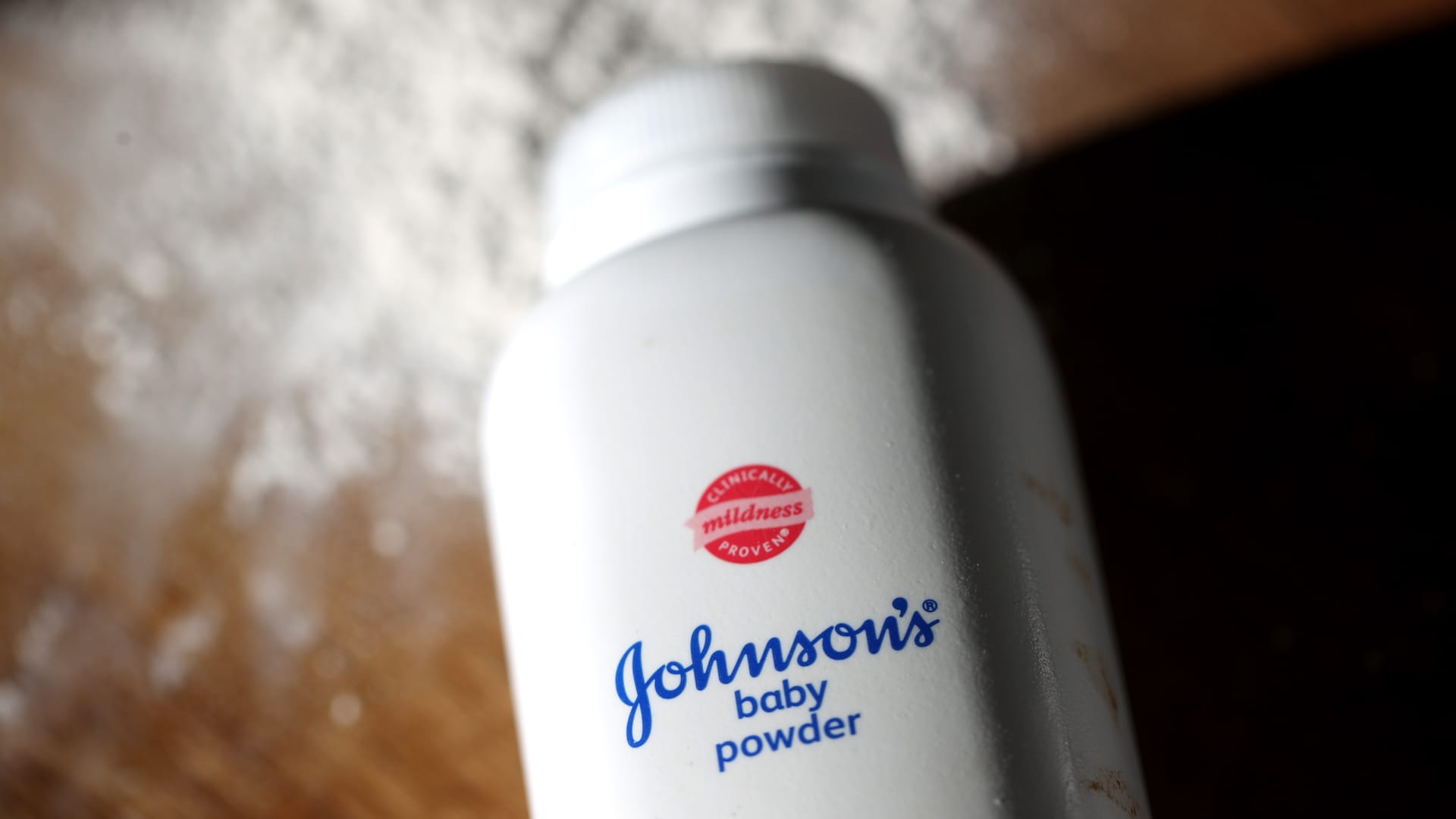Johnson & Johnson baby powder is displayed in San Anselmo, California.
Justin Sullivan | Getty Images
A Johnson & Johnson subsidiary filed for bankruptcy for a third time on Friday as the healthcare giant seeks to advance an approximately $8 billion proposed settlement that would end tens of thousands of lawsuits alleging that the company’s baby powder and other talc products caused cancer.
J&J’s Red River Talc unit made its filing in the U.S. Bankruptcy Court for the Southern District of Texas. J&J faces lawsuits from more than 62,000 claimants who alleged that its baby powder and other talc products were contaminated with asbestos and caused ovarian and other cancers.
J&J denies the allegations and has said that its products are safe.
After being rebuffed twice by federal courts, New Brunswick New Jersey-based J&J is attempting again to end the litigation in a so-called “Texas two-step” bankruptcy.
J&J said the Red River unit filed the bankruptcy case after it received support of about 83% of current claimants for the proposed bankruptcy plan.
The “two-step” maneuver involves offloading its talc liability onto a newly created subsidiary that then declares Chapter 11, a type of bankruptcy that involves a reorganization of assets and debts under court supervision. The goal is to use the proceeding to force all plaintiffs into one settlement, without requiring J&J itself to file for bankruptcy.
Bankruptcy judges can enforce global settlements that permanently halt all related lawsuits and forbid new ones.
Outside of bankruptcy, any settlement J&J reached with some claimants would still leave holdouts or future plaintiffs with the right to sue – and leave the company exposed to potential multibillion-dollar verdicts that encouraged it to use a two-step in the first place.
To improve its chances in a third bankruptcy effort, J&J asked plaintiffs to vote on its proposed deal ahead of time to ensure that it has enough support for its plan to succeed. J&J said it has more than the 75% of votes needed for a bankruptcy judge to impose the deal on all plaintiffs.
J&J’s third attempt at a bankruptcy settlement also differs from its previous efforts in part because it focuses only on ovarian and other gynecological cancer claims, building on J&J’s previous settlements with state attorneys general and people who had sued after developing mesothelioma, a rare form of cancer linked to asbestos exposure.
The company has been engaged in a bitter fight with lawyers opposing its third attempt to settle the litigation through this maneuver.
Its bankruptcy strategy still faces legal hurdles. These include a June U.S. Supreme Court decision involving Purdue Pharma’s bankruptcy, court orders dismissing its previous efforts and proposed federal legislation aimed at preventing financially healthy companies like J&J from benefiting from bankruptcy protection.





